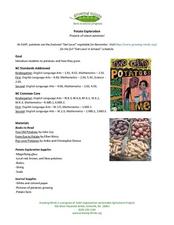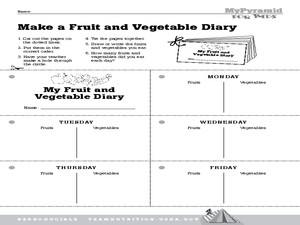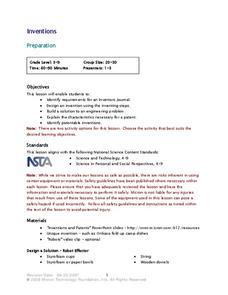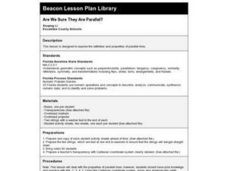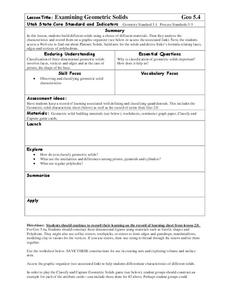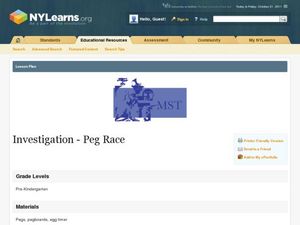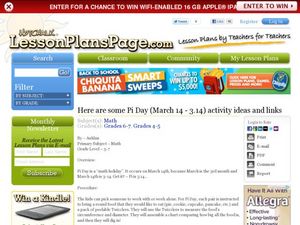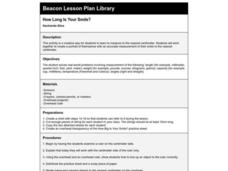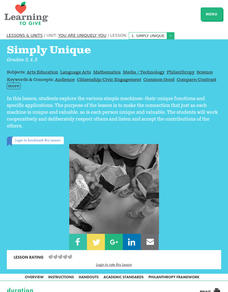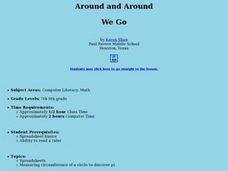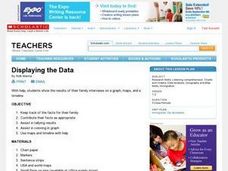Growing Minds
Potato Exploration: Projects All About Potatoes!
How many potatoes tall are you? Unearth this rich resource! A reading of John Coy’s Two Old Potatoes begins a cross-curricular exploration of potatoes. Class members read, write, weigh, measure, and experiment with potatoes. Additional...
Scientific American
Life-Sized Drawing
Ocean explorers or mathematicians research the wreck of the CSS H.L. Hunley. They investigate the actual dimensions of the Hunley using math and measuring skills. Afterward, they sketch a large scale drawing of the submarine outdoors on...
August House
Go to Sleep, Gecko
Use this multidisciplinary lesson to delve into these subjects: English language arts, math, science, drama, and character education. After reading, discussing, and making interpretations about Go To Sleep, Gecko!: A Balinese...
Curated OER
Theoretical Quantum Physics... For Kids!
Students explore quantum physics by participating in several class activities. In this space-time lesson, students discuss the concepts of time traveling and the anatomy of an atom. Students draw geometric figures and utilize string to...
Curated OER
Lesson 3: Vary Your Veggies and Focus on Fruits
Students explore fruits and vegetables. In this nutrition instructional activity, students generate a list of all known fruits and vegetables. Students cut out and compile pages for a weekly fruits and vegetable...
Curated OER
Inventions
Students study invention steps and design their own invention. In this invention lesson, students discuss inventions and the process of inventing. Studnets write in an inventor's journal and study various types of inventions....
Curated OER
Are We Sure They Are Parallel?
Fourth graders explore the definition and properties of parallel lines. This high level lesson has students calculate the slope of the two parallel lines, and draw the lines on a Caretsian coordinate system.
Curated OER
"Where Does Pi Come From?"
Fifth graders explore geometry by exploring Pi. In this circle measurement lesson, 5th graders identify the relationship between the radius, diameter and circumference of a circle and how Pi is the key to unlocking any circular...
National Wildlife Federation
Massive Migrations
Turn your students into flocks of migratory birds for this fun lesson on animal migration. Prior to the activity, the teacher creates four different migration routes in the classroom or any available open space, labeling nesting...
Curated OER
Investigation: Sorting and Classifying
Fifth graders explore geometry by creating shapes with construction paper. In this shape characteristics lesson plan, 5th graders identify the different attributes that make up specific shapes and create them using construction paper,...
Curated OER
Examining Geometric Solids
Students explore geometry by completing a math worksheet in class. In this shape identification lesson, students identify the characteristics associated with 15 solid geometric shapes. Students identify patterns between vertices, edges...
Curated OER
An Introduction to Simple Machines
Students investigate simple machines and their uses in everyday life. In this scientific method instructional activity, students examine physical tools such as wedges, screws, and levers using a "how does it work" approach....
Curated OER
Investigation: Peg Race
Learners explore competition by participating in a peg race. In this pattern creation instructional activity, students utilize an egg timer and pegs or colored cubes to create patterns quickly while competing with fellow classmates to...
Curated OER
Geometric Figures
Learners identify two and three dimensional shapes and use appropriate geometric vocabulary to write a description of the figure by taking pictures of geometric figures in their own environment.
Curated OER
Comparing Data
Eighth graders create a survey, gather data and describe the data using measures of central tendency (mean, median and mode) and spread (range, quartiles, and interquartile range). Students use these measures to interpret, compare and...
Curated OER
"Pi" Day
Your class will complete research dealing with Pi and its value in mathematics, leading into a discovery lab to demonstrate Pi, how it is determined, and how it is used. In the end, young scholars eat PIE!
Curated OER
How Long Is Your Smile?
Fourth graders measure to the nearest centimeter. They work together to create a portrait of themselves with an accurate measurement of their smile to the nearest centimeter. This is a creative way for students to explore centimeters.
Curated OER
Impacts to the Open Ocean
Students investigate how human beings impact ocean ecosystems. In this ocean ecosystem lesson, students explore how marine debris affects marine life. Internet resources are provided.
Curated OER
Math and Science in a Wetland
Students use scientific methods during field and lab investigations. Students collect specimens and make measurements using the metric system. Students describe biotic and abiotic factors in an estuary and design a model.
Curated OER
Injustice on Our Plates: Immigrant Women
Students investigate the plight of undocumented workers. In this social justice lesson, students research undocumented workers as well as consumer boycott movements and write about their impressions.
Curated OER
Simply Unique
Students identify, compare and contrast simple machines and their functions. They work together in groups to complete experiments using the simple machines. They write in their journals to reflect on the lesson plan.
Curated OER
Calder's Balancing Acts
Students learn the vocabulary of contemporary sculpture and distinguish between abstract and realistic sculpture, mobile and stabile, biomorphic and geometric. They write equations using Calder's mobiles
Curated OER
Around and Around
Students create a spreadsheet to record information about circular objects. They measure and record information from a variety of objects. Students calculate the ratio of the circumference to the diameter of each object. They find the...
Curated OER
Displaying the Data
Students gather facts about their parent's families through the completion of parent interview forms. Using tally marks, the data gathered is counted, transferred to graphs and used to create family timelines.
